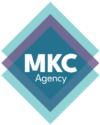SDRs are undersung heroes of the sales world—helping to make connections and solutions appear out of thin air.
While many envision a sales role in terms of suits and boozy lunches, the truth is that initial contact is often the hardest step. Business owners have busy schedules and aren’t too fond of strangers coming in and demanding their time. A skilled SDR can leverage their skills and products effectively to land more meetings, set up sales teams for more significant success, and fill the outreach pipeline to the brim with high-quality leads.
Below is a summary of what you can expect in compensation for this role and general considerations on the demands and unique attributes that make it an essential part of today’s sales ecosystem.
As a brief note before we get into it, these numbers are not reflective of the 2020 salaries. While official reports on the industry’s growth are yet to come out, we can confidently foreshadow that the average salary for SDRs in the US is on the rise. That means if you’ve been considering a career change, good things are coming.
Now, onto the show!
Software and Technology
SDRs have a unique and invaluable place in the sales cycle of B2B technologies and SaaS.
Part of their role is empathy and a deliberate understanding of the prospect’s procedures to suggest room for improvement through software solutions better. Their time spent with prospects will attract potential customers and nudge them towards articulating their pains and problems in straightforward ways that a Sales Manager can leverage.
Their collaborative efforts make for efficient pipelines, especially as senior sales directors may be too busy with product demonstrations and client relations to acquire or effectively nurture new leads.
According to Payscale, when it comes to an SDR with B2B experience, the average salary is $46k, between a high and low range of $61k and $35k, respectively. This does not include compensations such as performance bonuses or commissions, so work with your hiring partner closely to articulate how and where these additional income opportunities will come into effect.
If you are considering a career in SDR, this is a fantastic place to start and learn the skills necessary to discover and convert more effectively.
B2B Marketing
As this article on business development representatives outlines, a B2B marketing SDR or BDR will often be the first point of contact between a company and its outsourced marketer. As such, salaries are usually paid in relation to the competitiveness of the given market.
For instance, San Francisco, a haven for technology companies, sees SDR salaries 15% higher than the national average. That means you could be making $56k annually in a hot market like San Francisco or New York, but only $43k annually in a “cooler” market like New Orleans or Tulsa.
As salaries go up, so too will the experience necessary to be competitive. Career training can help you enter these higher-paid positions and will even demonstrate the value you will bring to the outreach you do on their behalf. After all, if they hire you based on your outreach, wouldn’t that directly translate to success as an SDR? Contact me to learn more about B2B and SDR training career coaching.
SDR’s are an essential part of the sales pipeline. Outreach isn’t always glorious, but it is where the majority of B2B business is completed in the digital age.
Whether you’re looking to outsource or augment your SDR team, Megan Killion Consulting services are available to help. Book a meeting today to move your career, goals, and conversion further than ever before.

